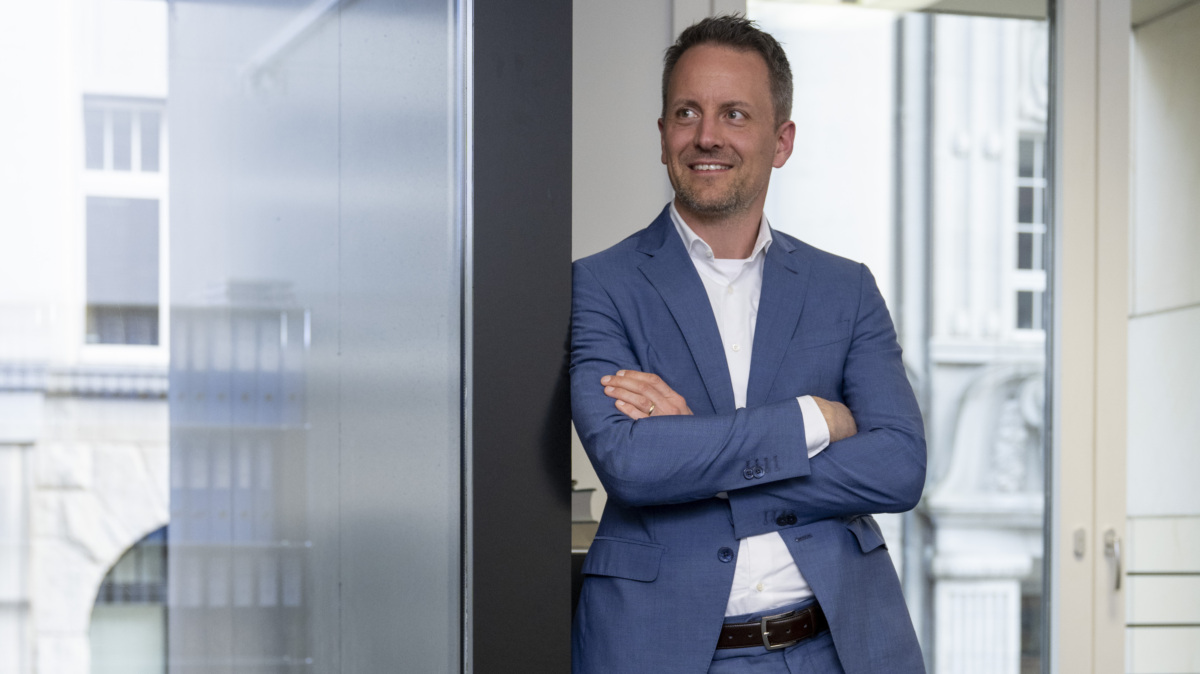Table of Contents
A woman from Wolfsburg has suffered a difficult fate that completely turns her family life upside down!
There are only a few treatment options in Wolfsburg for the illness she suffers from. A certain method could help the mother of two – but there is a catch.
Wolfsburg: Early retiree at 43 years old
Wenke Prause from Wolfsburg used to enjoy being active and jogging, reports the “Wolfsburg General“. In 2018 she began to notice difficulties and over time the movements became more and more strenuous, so that even going to the supermarket was difficult. From then on the odyssey began, as the mother of two was looking for answers. Where did the gait problems come from? What followed were years of doctor visits and tests.
+++ Wolfsburg woman experiences the horror moment of her life – only her screams can help her +++
In 2023 she finally got a diagnosis: Prause suffers from the rare chronic inflammatory disease “primary progressive multiple sclerosis” (PPMS). The life of the mother of sons aged seven and ten changed suddenly and severely restricted her everyday life. Now, aged just 43, she sits in a wheelchair and is an early retiree.
Wolfsburg: Treatment is too expensive
According to the “Wolfsburg GeneralHer illness does not occur in episodes, but rather progresses constantly. Simply accepting the new lifestyle is out of the question for Prause, which is why she researched the Internet for more information about her illness. There, through information from other sufferers, she came across the treatment method of stem cell therapy.
With successful treatment, Prause could regain some of his life. Unfortunately, the health insurance company refuses to cover the costs because they are quite demanding. A total of 60,000 euros have to be paid for stem cell therapy in Mexico!
Hope for support
The mother cannot manage this amount alone. That’s why she hopes to raise enough money for the treatment by calling for donations on the “Go Fund Me” platform. So far around 28,000 euros have been donated. The woman from Wolfsburg did not expect such a response.
More news:
“We are absolutely speechless,” she says.Wolfsburg General“. However, more than half of the money needed for stem cell therapy is still missing. The mother hopes for further support so that she can be there while her children grow up.
## Interview: Hope for Wenke – A Family’s Fight Against a Relentless Disease
**Guests:**
* **Dr. Maria Schmidt:** Neurologist specializing in Multiple Sclerosis
* **Sarah Thompson:** Fundraising expert and advocate for patients facing expensive treatments
**Host:** Welcome to World Today News. Today, we’re discussing the difficult situation facing Wenke Prause, a mother of two from Wolfsburg diagnosed with primary progressive multiple sclerosis (PPMS). Her story sheds light on the challenges of rare diseases, access to treatment, and the power of community support.
We’ll be joined by Dr. Maria Schmidt, a neurologist specializing in MS, and Sarah Thompson, a fundraising expert and advocate for patients facing expensive treatments. Thank you both for joining us.
**Section 1: Understanding PPMS**
* **Host:** Dr. Schmidt, Wenke’s story highlights the debilitating nature of PPMS. Could you explain what makes this form of MS unique and particularly challenging for patients?
* **Host:** For someone newly diagnosed with PPMS, what are the typical treatment options, and how do those compare to the options available for relapsing-remitting MS?
* **Host:** Wenke’s diagnosis came after years of searching for answers. What advice would you give to individuals experiencing similar symptoms, and how can they navigate the healthcare system to get a timely diagnosis?
**Section 2: The Ethical Dilemma of Expensive Treatments**
* **Host:** Wenke discovered stem cell therapy as a potential treatment option, but her health insurance refuses coverage due to its high cost. Sarah, what are your insights into the ethical complexities surrounding expensive, non-traditional treatments like stem cell therapy?
* **Host:** Should patients like Wenke have better access to potentially life-changing treatments, even if they are costly? What can be done to address the gap between promising medical advancements and accessibility?
* **Host:** Many people are turning to crowdfunding platforms like Go Fund Me to raise money for medical expenses. What are the pros and cons of this approach, and how can we ensure its ethical and responsible use?
**Section 3: Community Support & Hope for the Future**
* **Host:** Wenke’s fundraiser has received significant support from the community, raising nearly half of her goal. What does this show us about the power of collective action and compassion?
* **Host:** Beyond financial support, what other forms of assistance can communities provide for individuals and families facing rare diseases?
* **Host:** This story is a powerful reminder of the resilience of the human spirit in the face of adversity. What message of hope can we offer to Wenke and others facing similar challenges?
* **Host:** Thank you both for your insightful perspectives.
**Closing:** We hope this discussion has shed light on the difficult realities faced by people with rare diseases and the importance of continued research, greater access to treatment, and the unwavering support of our communities.


